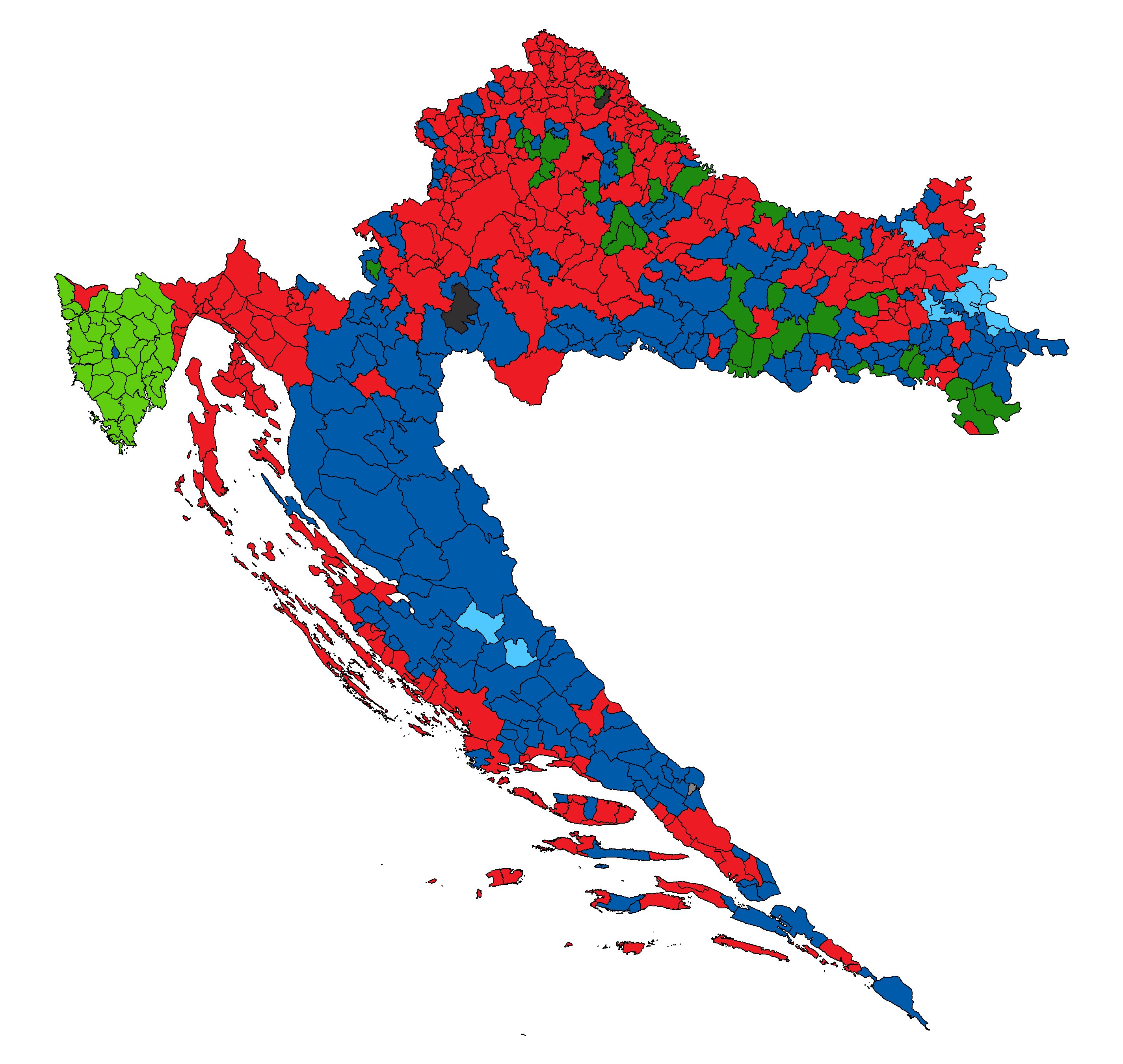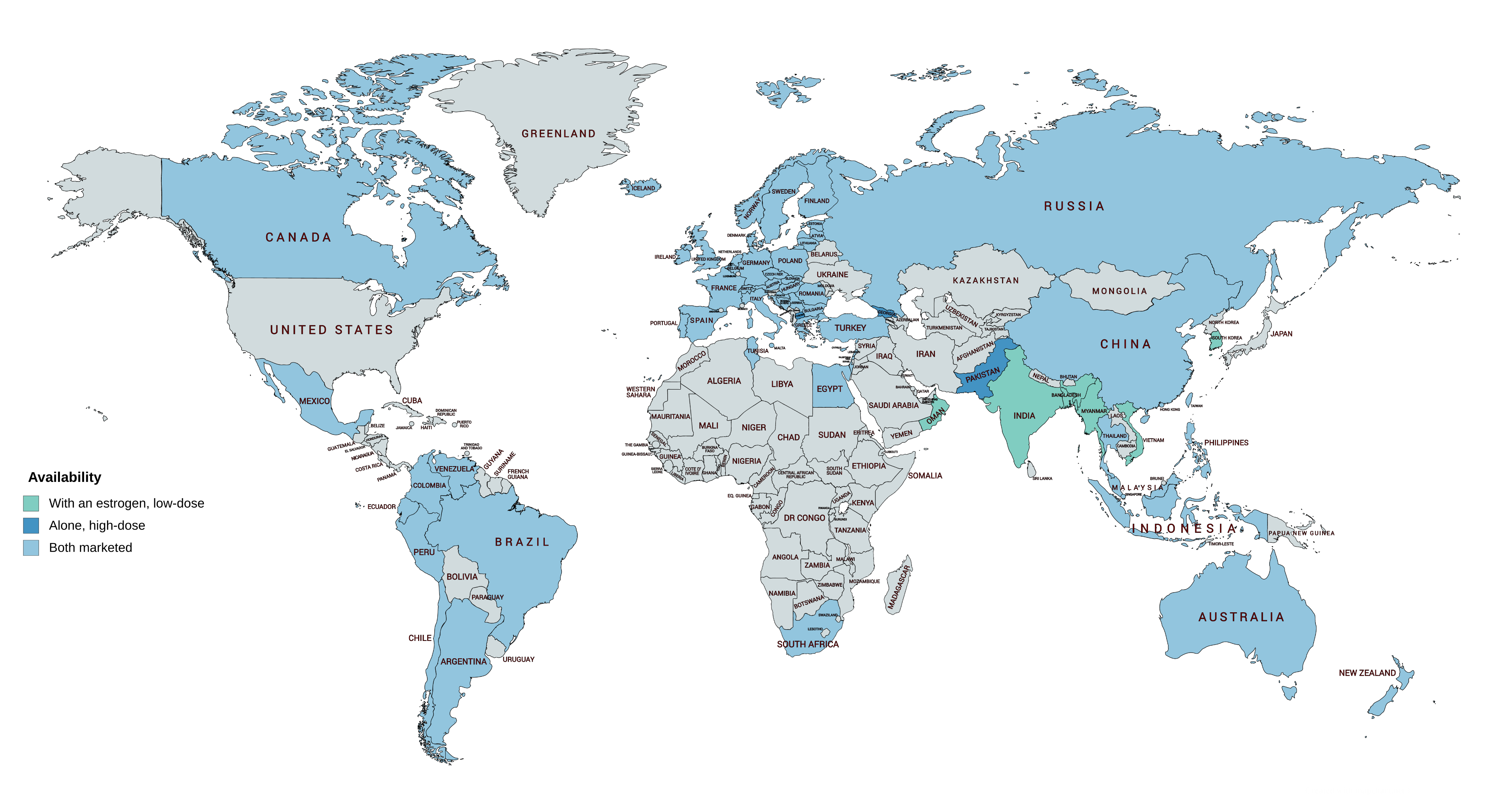|
Croatian Parliamentary Election, 2003
Parliamentary elections were held in Croatia on 23 November 2003 to elect all 151 members of parliament. They were the fifth parliamentary elections to take place since the first multi-party elections in 1990. Voter turnout was 61.7%. The result was a victory for the opposition Croatian Democratic Union (HDZ) which won a plurality of 66 seats, but fell short of the 76 needed to form a government. HDZ chairman Ivo Sanader was named the eighth Prime Minister of Croatia on 23 December 2003, after parliament passed a confidence motion in his government cabinet, with 88 MPs voting in favor, 29 against and 14 abstaining. The ruling coalition going into the elections, consisting of the Social Democratic Party (SDP), Croatian People's Party (HNS), Croatian Peasant Party (HSS), Party of Liberal Democrats (Libra) and the Liberal Party (LS), did not contest the elections as a single bloc; the SDP ran with the Istrian Democratic Assembly (IDS), the Party of Liberal Democrats (Libra) an ... [...More Info...] [...Related Items...] OR: [Wikipedia] [Google] [Baidu] |
2000 Croatian Parliamentary Election
Parliamentary elections were held in Croatia on 3 January 2000 to elect members of the Chamber of Representatives. The ruling Croatian Democratic Union entered the elections weakened by a series of corruption scandals that came to light in the previous parliamentary term and fractures between its hardline nationalists and more moderate members. However, the most important factor was the deteriorating health of the party leader and Croatian president Franjo Tuđman, which left no successor within the party. On the other side, two major Croatian opposition parties – the Social Democratic Party of Croatia and Croatian Social Liberal Party – had their coalition formally agreed in 1998 and spent more than a year preparing for the elections. At first, they were to run together with the Croatian Peasant Party, Croatian People's Party, Istrian Democratic Assembly and Liberal Party, but as Tuđman's condition worsened, leaders of the SDP and HSLS concluded that they could win election ... [...More Info...] [...Related Items...] OR: [Wikipedia] [Google] [Baidu] |
Međimurje Party
The Međimurje Party ( or MS) is a regional political party in Croatia, formed in Međimurje in 2000. It is usually aligned with right-wing parties. At the last legislative elections, 23 November 2003, an alliance of the Croatian Party of Rights The Croatian Party of Rights (, HSP) is an Extra-parliamentary opposition, extra-parliamentary Croatian nationalism, nationalist and Neo-fascism, neo-fascist List of political parties in Croatia, political party in Croatia. The word "right(s)" i ... (''Hrvatska stranka prava''), the Međimurje Party and the Zagorje Democratic Party - won 6.4% of the popular vote and 8 out of 151 seats, all for the HSP. Electoral history Legislative References Regionalist parties in Croatia Political parties established in 2000 2000 establishments in Croatia Right-wing parties in Europe {{Croatia-party-stub ... [...More Info...] [...Related Items...] OR: [Wikipedia] [Google] [Baidu] |
Croatian Parliament Electoral Districts
The Croatian Parliament electoral districts () are the special territorial subdivision of Croatia used for Elections in Croatia#Parliamentary elections, the country's parliamentary elections. Croatia has twelve electoral districts. Ten of these are geographical districts within Croatia, each providing fourteen members of sabor, Croatian Parliament. District XI is for Croatian citizens living abroad, with three members of parliament (until 2011, it elected a maximum twelve members of parliament, depending on turnout). District XII is for national minorities, providing eight members of parliament. The first ten districts are roughly based on geography, but shaped according to the number of voters so that each district holds roughly the same number of registered voters, around 400,000. These districts therefore do not correspond to the borders of top administrative divisions within Croatia and each district contains one or more or parts of several Counties of Croatia, Croatian counti ... [...More Info...] [...Related Items...] OR: [Wikipedia] [Google] [Baidu] |
Furio Radin
Furio Radin (born 1 June 1950) is a Croatian politician who is currently serving as a Member of the Croatian Parliament for the Italian national minority, an office he has held since 7 September 1992. He has also been the Chair of the Parliamentary Committee on Human Rights and Rights of National Minorities since 2000, and one of the Deputy Speakers of the Parliament since 9 June 2017. Radin is the longest-serving Member of Parliament in Croatian history, with a service lasting , as of . Radin was first elected to the parliament in the 1992 election and was re-elected to nine more terms, in the 1995, 2000, 2003, 2007, 2011, 2015, 2016, 2020 and 2024 elections respectively. Although he is formally an independent, he has closely cooperated with the liberal regionalist Istrian Democratic Assembly party, in whose parliamentary club he also sits. Early life and education Furio Radin was born on 1 June 1950 in Pula, where he attended elementary and high school. He earned a degree ... [...More Info...] [...Related Items...] OR: [Wikipedia] [Google] [Baidu] |
Nikola Mak
Nikola () is a given name which, like Nicholas, is a version of the Greek ''Nikolaos'' (Νικόλαος) and it means "the winner of the people". It is common as a masculine given name in the South Slavic countries (Bosnia and Herzegovina, Bulgaria, Croatia, North Macedonia, Montenegro, Serbia, Slovenia), while in West Slavic countries (Czech Republic, Poland, Slovakia) it is primarily found as a feminine given name. There is a wide variety of male diminutives of the name, examples including: Niko, Nikolica, Nidžo, Nikolče, Nikša, Nikica, Nikulitsa, Nino, Kole, Kolyo, Kolyu. The spelling with a K, ''Nikola'', usually indicates Slavic origin, while '' Nicola'' usually indicates Italian origin. Statistics *Serbia: male name. 5th most popular in 2011, 1st in 2001, 1st in 1991, 5th in 1981, 9th pre-1940. *Croatia: male name. 32,304 (2011), 26,986 (2021) *Bosnia and Herzegovina: male name. *Bulgaria: male name. * North Macedonia: male name. *Czech Republic: 22,567 females an ... [...More Info...] [...Related Items...] OR: [Wikipedia] [Google] [Baidu] |
German People's Union – National Association Of Danube Swabians In Croatia
The German People’s Union – National Association of Danube Swabians in Croatia () is a Croatian organization representing the German minority, most obviously the Danube Swabians. Established in 1992, and headquartered in Osijek, the organization is active in a number of fields, most prominently culture. In the 2003 Croatian parliamentary election Parliamentary elections were held in Croatia on 23 November 2003 to elect all 151 members of parliament. They were the fifth parliamentary elections to take place since the first multi-party elections in 1990. Voter turnout was 61.7%. The result ..., they nominated one Nikola Mak in the election for the special seat for the German minority and won one seat in parliament. References External links German People’s Union – National Association of Danube Swabians in Croatia Political parties of minorities in Croatia Croatian people of German descent Political parties established in 1992 1992 establishments in Croatia G ... [...More Info...] [...Related Items...] OR: [Wikipedia] [Google] [Baidu] |
Jene Adam
Ethinylestradiol/cyproterone acetate (EE/CPA), also known as co-cyprindiol and sold under the brand names Diane and Diane-35 among others, is a combination of ethinylestradiol (EE), an estrogen, and cyproterone acetate (CPA), a progestin and antiandrogen, which is used as a birth control pill to prevent pregnancy in women. It is also used to treat androgen-dependent conditions in women such as acne, seborrhea, excessive facial/body hair growth, scalp hair loss, and high androgen levels associated with ovaries with cysts. The medication is taken by mouth once daily for 21 days, followed by a 7-day free interval. Medical uses EE/CPA is used as a combined birth control pill to prevent ovulation and pregnancy in women. It is also approved and used to treat androgen-dependent conditions in women such as acne, seborrhea, hirsutism, female pattern hair loss, and hyperandrogenism due to polycystic ovary syndrome. Available forms EE/CPA comes in the form of oral tablets and conta ... [...More Info...] [...Related Items...] OR: [Wikipedia] [Google] [Baidu] |
Vojislav Stanimirović (politician)
Vojislav Stanimirović ( sr-Cyrl, Војислав Станимировић; born 19 August 1953) is a Croatian Serb politician as well as the founder and former president of the Independent Democratic Serb Party. During his political career he held various functions both in Croatian and self-proclaimed Republic of Serbian Krajina institutions and political organizations. He was elected member of Croatian Parliament, president of the Independent Democratic Serb Party, 2nd Chairman of the Government of Eastern Slavonia, Baranja and Western Syrmia and minister without portfolio in the last Cabinet of Milan Babić of the Government of the RSK. Over the years Stanimirović's political positions evolved from that of hawkish Serbian Radical supporter of unification of the Republic of Serbian Krajina and Republika Srpska before Operation Storm and prominent critic of more conciliatory and FR Yugoslavia aligned local authorities in Eastern Slavonia, to the main proponent of mode ... [...More Info...] [...Related Items...] OR: [Wikipedia] [Google] [Baidu] |
Croatian Democratic Peasant Party
The Croatian Democratic Peasant Party ( or HDSS) is a minor agrarianism, agrarian-Conservatism, conservative list of political parties in Croatia, political party in Croatia. The party was led by Ivo Lončar, a popular television news reporter who was elected as a member of the 2000-2003 Parliament from the Croatian Peasant Party list; he subsequently left the party and became an independent deputy. In the 2003 Croatian parliamentary election, November 2003 election he led the party list of HDSS and two other smaller parties and managed to retain his seat in the Croatian Parliament, Parliament. The alliance won 1.0% of the popular vote and 1 out of 151 seats. Since 2006, the party politics shifted from Centre-right politics, center-right to Centrism, center. HDSS supports the development of the agrarian sector, free enterprise, as well as the values of tolerance and dialogue. Election results Legislative References External links * Agrarian parties in Croatia, De ... [...More Info...] [...Related Items...] OR: [Wikipedia] [Google] [Baidu] |
Dražen Budiša
Dražen Budiša (born 25 July 1948) is a Croatian politician who used to be a leading opposition figure in the 1990s and a two-time presidential candidate. As president of the Croatian Social Liberal Party through the 1990s he remains to date the only Leader of the Opposition not to have been from either the Croatian Democratic Union or the Social Democratic Party. Biography During Yugoslavia Budiša was born in Drniš, People's Republic of Croatia, within the Federal People's Republic of Yugoslavia. He studied Philosophy and Sociology at the Faculty of Philosophy in Zagreb and took part in the Croatian Spring in the 1970s. For his activities he was later sent to Lepoglava prison by Communist authorities. Before the arrival of democracy he worked as a librarian. In 1989 he was one of the founders of Croatian Social Liberal Party and later its leader. During the 1990 elections his party joined the Coalition of People's Accord and fared badly, including Budiša who failed to wi ... [...More Info...] [...Related Items...] OR: [Wikipedia] [Google] [Baidu] |



